 Weird Stuff
Weird Stuff  Weird Stuff
Weird Stuff  Movies and TV
Movies and TV 10 Weird Ways That TV Shows Were Censored
 Our World
Our World 10 Places with Geological Features That Shouldn’t Exist
 Crime
Crime 10 Dark Details of the “Bodies in the Barrels” Murders
 Animals
Animals The Animal Kingdom’s 10 Greatest Dance Moves
 Movies and TV
Movies and TV 10 Box Office Bombs That We Should Have Predicted in 2025
 History
History 10 Extreme Laws That Tried to Engineer Society
 History
History 10 “Modern” Problems with Surprising Historical Analogs
 Health
Health 10 Everyday Activities That Secretly Alter Consciousness
 History
History Top 10 Historical Disasters Caused by Someone Calling in Sick
 Weird Stuff
Weird Stuff 10 Wacky Conspiracy Theories You Will Need to Sit Down For
 Movies and TV
Movies and TV 10 Weird Ways That TV Shows Were Censored
 Our World
Our World 10 Places with Geological Features That Shouldn’t Exist
Who's Behind Listverse?

Jamie Frater
Head Editor
Jamie founded Listverse due to an insatiable desire to share fascinating, obscure, and bizarre facts. He has been a guest speaker on numerous national radio and television stations and is a five time published author.
More About Us Crime
Crime 10 Dark Details of the “Bodies in the Barrels” Murders
 Animals
Animals The Animal Kingdom’s 10 Greatest Dance Moves
 Movies and TV
Movies and TV 10 Box Office Bombs That We Should Have Predicted in 2025
 History
History 10 Extreme Laws That Tried to Engineer Society
 History
History 10 “Modern” Problems with Surprising Historical Analogs
 Health
Health 10 Everyday Activities That Secretly Alter Consciousness
 History
History Top 10 Historical Disasters Caused by Someone Calling in Sick
10 Common Things That Were Once Banned
Some things that we take for granted today used to be illegal. They were banned, even though they were pretty much harmless. Often, those responsible for these laws had motives other than the stated purposes of the bans.
The once-banned items on this list range from sports to beverages to even holidays. And the holiday we are talking about here isn’t just any holiday but Christmas. The fact that the ban was issued by a Christian sect even makes it more surprising.
10 Football

Football (or soccer, if you prefer) has a turbulent history in England and Scotland, where it has been banned several times. Edward II of England issued the first ban on April 13, 1314, prohibiting the sport in London. He decreed that football caused noise and could lead to certain unwanted consequences.
A second ban followed in 1331, when Edward III prohibited football even further. Edward III went on to ban all sports in 1363 and ordered that everyone practice archery instead. Kings Richard II, Henry IV, and Henry V also forbade football during their reigns.
While most of the bans were issued over concerns that people spent more time playing football than practicing archery, the kings were not really as concerned with their subjects’ bowmanship as they tried to make it seem. Football was the game of the commoners, without the involvement of the aristocracy. So it was normal that they got jealous.[1]
9 Christmas

In 1659, the Puritans did the impossible by banning Christmas. The Puritans had a strict interpretation of Christianity and believed that all forms of celebration, including Christmas, were sins. They also considered Christmas a pagan holiday.
Christmas festivities were first banned in England in 1644 after the Puritans became the majority in the English parliament. The Puritans in New England heard of the ban and issued a similar one. The ban did not stop at Christmas. Christmas trees, decorations, and dishes like mince pies were also banned.
To ensure that no one was secretly celebrating Christmas, they demanded that businesses remain open on Christmas day. Town criers walked around the day before Christmas, reminding everyone that there was no Christmas the next day. Christmas remained banned in England until 1660 and in New England until 1681.[2]
8 Chess
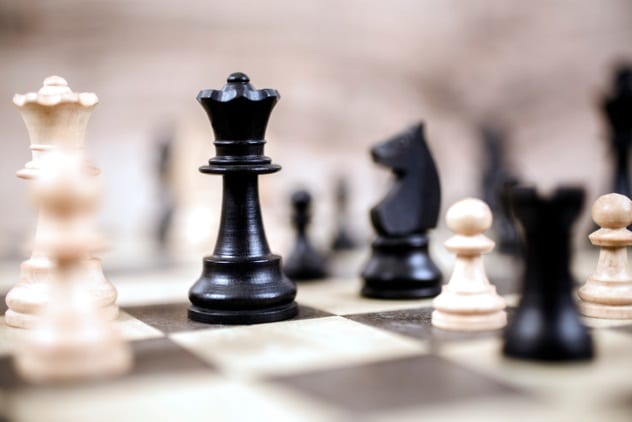
At various times through history, chess has been banned in Persia, Egypt, Japan, and France. It was banned in modern Afghanistan and is currently banned in Saudi Arabia. Chess was forbidden in Persia in AD 644, after the city was captured by the Muslim army of Umar bin al-Khatta. Al-Khatta banned chess over concerns it could lead to gambling.
A few decades after that, Emperor Jito banned chess in Japan. In 1005, it was outlawed in Egypt, and in 1061, Cardinal Damiani of Ostin prohibited clergymen from playing the game. Chess was banned by the Eastern Orthodox church in 1195 and in France in 1254. King Louis IX said chess was “useless” and “boring.”
The Taliban banned chess in 2001. They claimed it made people miss prayers and could encourage gambling. Saudi Arabia followed in 2016, saying the game was a time-waster. It is obvious that all of these kingdoms, churches, and monarchies banned chess over flimsy excuses. This means there could have been undisclosed underlying reasons.
That underlying reason is suspected to be religion. People could assume a powerful being somewhere controlled their luck whenever they won or lost a game of chance. However, with a game of strategy like chess, they could realize their win or loss is determined by their actions. The leaders feared this could become a threat if people applied that belief to the real world.[3]
7 Popcorn

Popcorn was banned from movie cinemas during the silent film era. Back then, movies were a form of entertainment primarily enjoyed by the upper classes, who were most likely to be able to read the captions in the films. Cinemas were expensively furnished to cater to the target audience. The floors were covered with expensive carpets and rugs. Theater owners did not want popcorn bits messing up their rugs, so they just banned it. (Popcorn was a commonly sold street food at the time.)
This changed during the Great Depression, when the first sound films appeared. People no longer needed to be educated to enjoy their favorite movies. This opened the cinemas to the lower classes. They came in with their popcorn, which was cheap, even at the height of the Great Depression.
Popcorn vendors realized the huge market potential and moved their wares closer to the movie theaters. Cinema owners realized what was happening and started charging the vendors to sell popcorn around their establishments. The owners later realized they would make more profits if they sold the popcorn themselves, so they added it to their businesses.[4]
6 Bowling
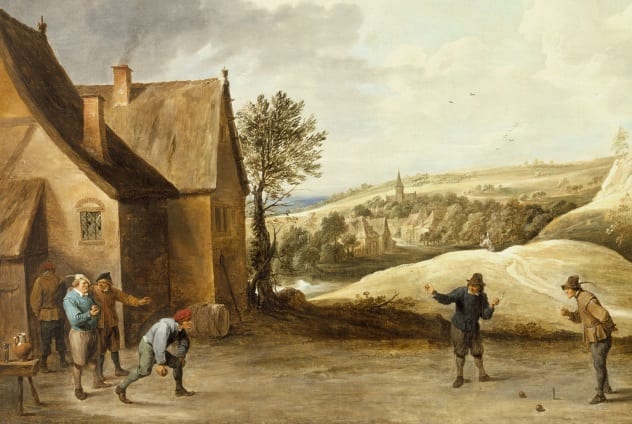
Bowling is another sport that was banned by the British kings of old. King Edward III, who we already mentioned for outlawing football, banned bowling in 1366 because it distracted people from practicing archery. King Edward IV banned it again in 1477, along with several other sports and games, over concerns they all stopped people from working on their bow proficiency.
King Henry VIII also banned bowling, even though he was a bowler himself. Like his predecessors, the ban was directed at the archers, who he complained spent more time bowling and engaging in sports than practicing archery.
The fact that Henry loved bowling probably stopped him from banning it completely. However, he enforced certain laws that would have left bowling the exclusive province of the aristocracy. First, anyone who owned a bowling green was expected to pay a tax of £100. Outdoor greens were outlawed. Greens had to be indoors and used for private purposes only.[5]
5 Women Wearing Trousers
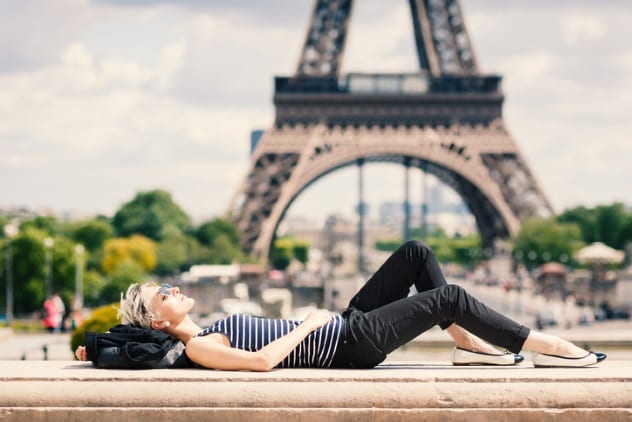
In 1800, the Paris police chief declared that women needed to seek clearance from the police headquarters before wearing men’s clothing. In 1892, the law was reformed to allow women wear trousers on the condition that they held the reins of a horse at all times.
The law was further reformed in 1909 to include the condition that the woman was riding a bicycle. If they dismounted from the bike, they needed to keep their hands on the handlebars. In 1969, Paris’s then-current police chief was asked by the city council to repeal the law. He refused (even though it was no longer enforced), saying that the law could become necessary again due to the unpredictable nature of fashion.
Ironically, Paris policewomen would later start wearing pants as part of their uniforms. Another attempt to have the law repealed failed in 2003, after the minister in charge of gender equality said it was unnecessary to change the ordinance since it was not enforced.[6] The law was finally repealed on January 31, 2013.
4 Women Owning Credit Cards

Women in the United States were not explicitly barred from owning credit cards, at least not officially. However, they experienced open discrimination and found it difficult to obtain them. Married women were required to have their husbands sign their applications before they could be issued credit cards. Widows and single women were expected to find a man to cosign.
A woman was also required to reveal her marital status and number of children before she could be issued a credit card. Her earnings were also halved to calculate the maximum amount she could spend on her card. The discrimination continued until 1974, when Congress passed the Equal Credit Opportunity Act, which made it illegal to discriminate against any credit card applicant based on their gender, race, religion, and so on.[7]
3 Coffee Shops
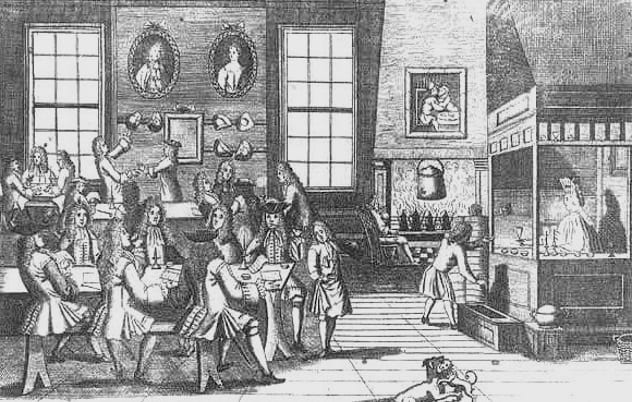
In 1675, King Charles II of England passed a law banning coffee shops. To stop some creative entrepreneurs from “working from home,” he also banned everyone from selling coffee from their homes. In fact, he barred everyone from selling coffee, tea, chocolate, and sherbet in any house or shop.
The ban had nothing to do with coffee itself. The king was only concerned that people could plan a rebellion in coffee shops. Coffee shops were the equivalent of today’s bars. London alone had up to 3,000 of them, where people gathered to gossip and discuss national issues.
King Charles II had a bitter history when it came to trusting people and always suspected that everyone was out to hurt him. He did not state that in the decree he issued to inform his subjects about the ban, though. He claimed coffee shops made people lazy and disturbed the public peace. The ban was never enforced, since it was abolished two days before it became effective.[8]
2 Swimwear
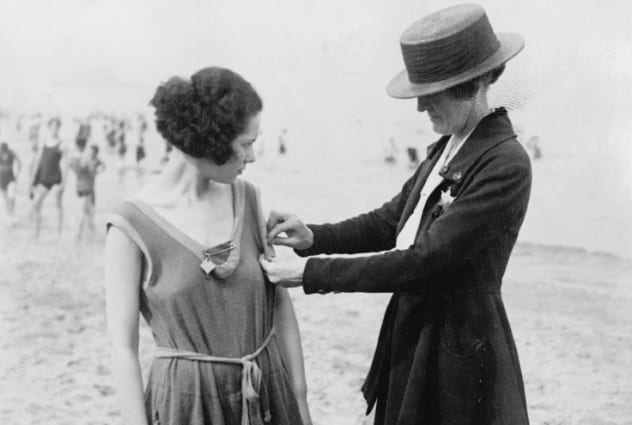
Swimwear caused a moral panic in the early part of the 20th century. Before the 1900s, swimwear was made of wool and covered the whole body. It was even comparable with regular everyday clothes. Things changed in the 20th century, when bathing attire became sleeveless and tighter.
In an attempt to preserve public decency, cities and beaches started passing laws and ordinances to set a minimum length for swimwear allowed on their beaches. The one-piece swimsuit was banned outright. Several women were arrested for wearing short bathing suits at several beaches, including those in famous cities like New York and Chicago.
In 1919, New York recruited 20 special female sheriffs to patrol its beaches to ensure that women only wore the approved swimwear. In 1921, Hawaii amended its law to allow women wear short swimsuits on the condition that they covered them with a longer cloth. Some women covered themselves with towels and raincoats to stay within the limits of this law. Things started to change in the 1930s, when governments began to tolerate women with shorter swimwear.[9]
1 Bikini
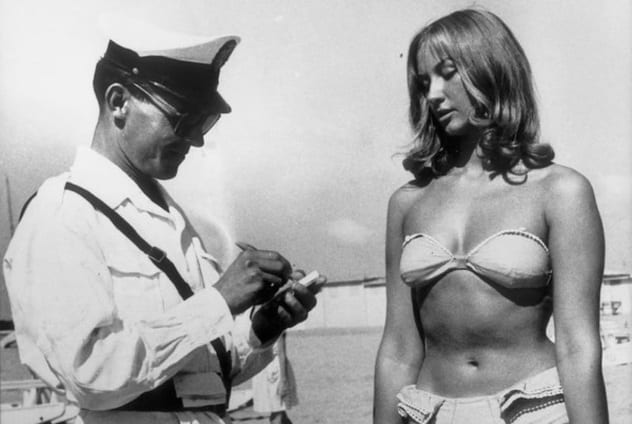
The bikini was another victim of the war against public indecency. It caused its own moral panic soon after it was released in 1946. At one point, its maker, Louis Reard, became demotivated by its poor sales and almost gave up. The bikini was banned in France, Spain, Italy, Portugal, Australia, and in some parts of the US. For a time, they couldn’t be shown in Hollywood films, either.
In 1953, Pedro Zaragoza, the mayor of Benidorm, allowed people wear bikinis on the city’s beaches, even though the attire was banned in the whole of Spain. British tourists were bringing their bikinis to the city, and the mayor knew he had to allow them to wear their bikinis if he was ever going to turn Benidorm into a tourist destination.
Several women got into trouble with Civil Guard members at the beaches because of this contradictory law. Nevertheless, Zaragoza was determined to let the bikini stay. He rode his scooter on an eight-hour trip to visit General Francisco Franco, the military dictator of Spain, in Madrid. His pants were stained with motor oil by the time he met the general. General Franco acquiesced, and the bikini slowly entered Spain.[10]
For more surprising bans, check out Top 10 Crazy Things That Crazy Schools Have Banned and 10 Books Banned In The 21st Century.




![10 Episodes That Were Banned From Television [Videos—Seizure Warning] 10 Episodes That Were Banned From Television [Videos—Seizure Warning]](https://listverse.com/wp-content/uploads/2019/10/image-150x150.jpg)



